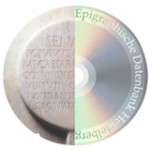 Heidelberg University sees itself as a research university with a strong international orientation. Besides enhancing its disciplinary strengths, the University places special emphasis on maintaining dialogues across traditional subject boundaries.
Heidelberg University sees itself as a research university with a strong international orientation. Besides enhancing its disciplinary strengths, the University places special emphasis on maintaining dialogues across traditional subject boundaries.
Firmly rooted in its history, the University is committed to expanding and disseminating our knowledge about all aspects of humanity and nature through research and education. The University upholds the principle of freedom of research and education, acknowledging its responsibility to humanity, society, and nature.
According to its motto »Semper apertus« (»Always open«) Heidelberg University, in a spirit of open-mindedness and tolerance toward individuals and ideas, aspires to generate and harness knowledge and skills for the benefit of current and future generations.
Some facts and figures. Heidelberg University has 30,873 students, awarded 1,127 PhDs in 2011, has 5,278 academic staff, 15 Collaborative Research Cenntres (DFG), 6 Research Training Groups (DFG), 16 Research Units (DFG), 19 Research networks involving non-university institutes, 11 Projects in cooperation with Heidelberg Academy of Sciences and Humanities, 12 ERC Starting Grants, and 12 ERC Advanced Grants. [more info at http://www.uni-heidelberg.de/university/statistics/]
Heidelberg University’s identity as a comprehensive university has grown out of its academic history, its commitment to the present, and its interest in shaping the future. The research and educational efforts of the university are devoted to pursuing the central questions confronting humanity, concentrating on fundamental research and its application, and empowering its students to participate in this scientific and academic endeavour at an early stage.
More information available at http://www.uni-heidelberg.de/university/ and http://www.uni-heidelberg.de/university/profile/mission.html.
Role in the project
- WP5 Leader
- Content Provider
